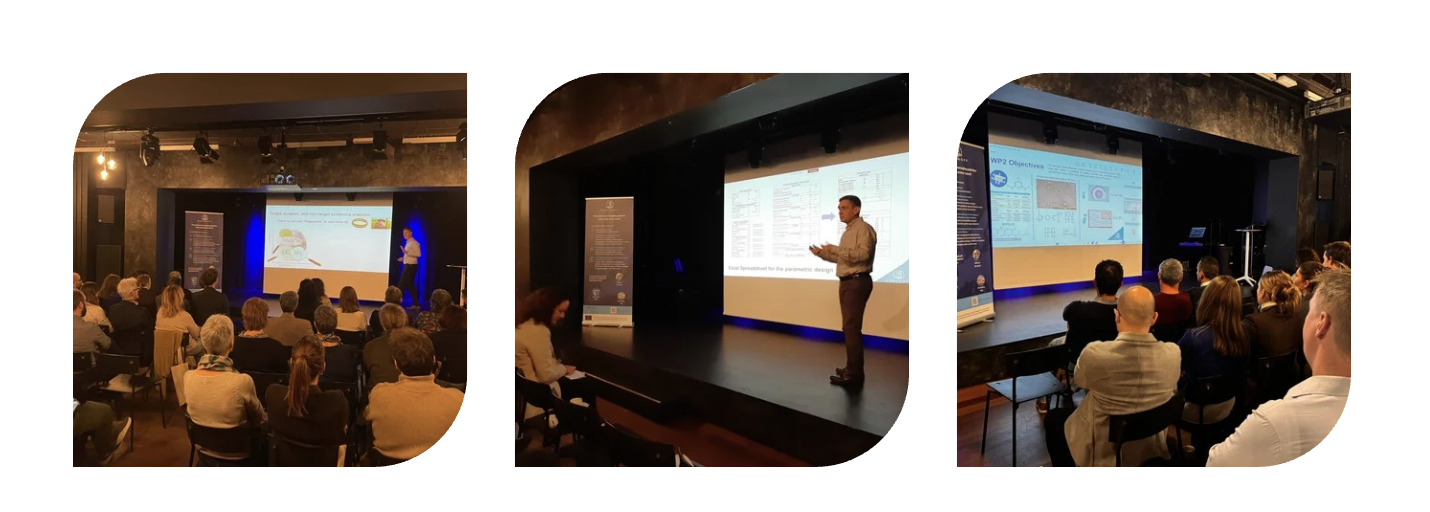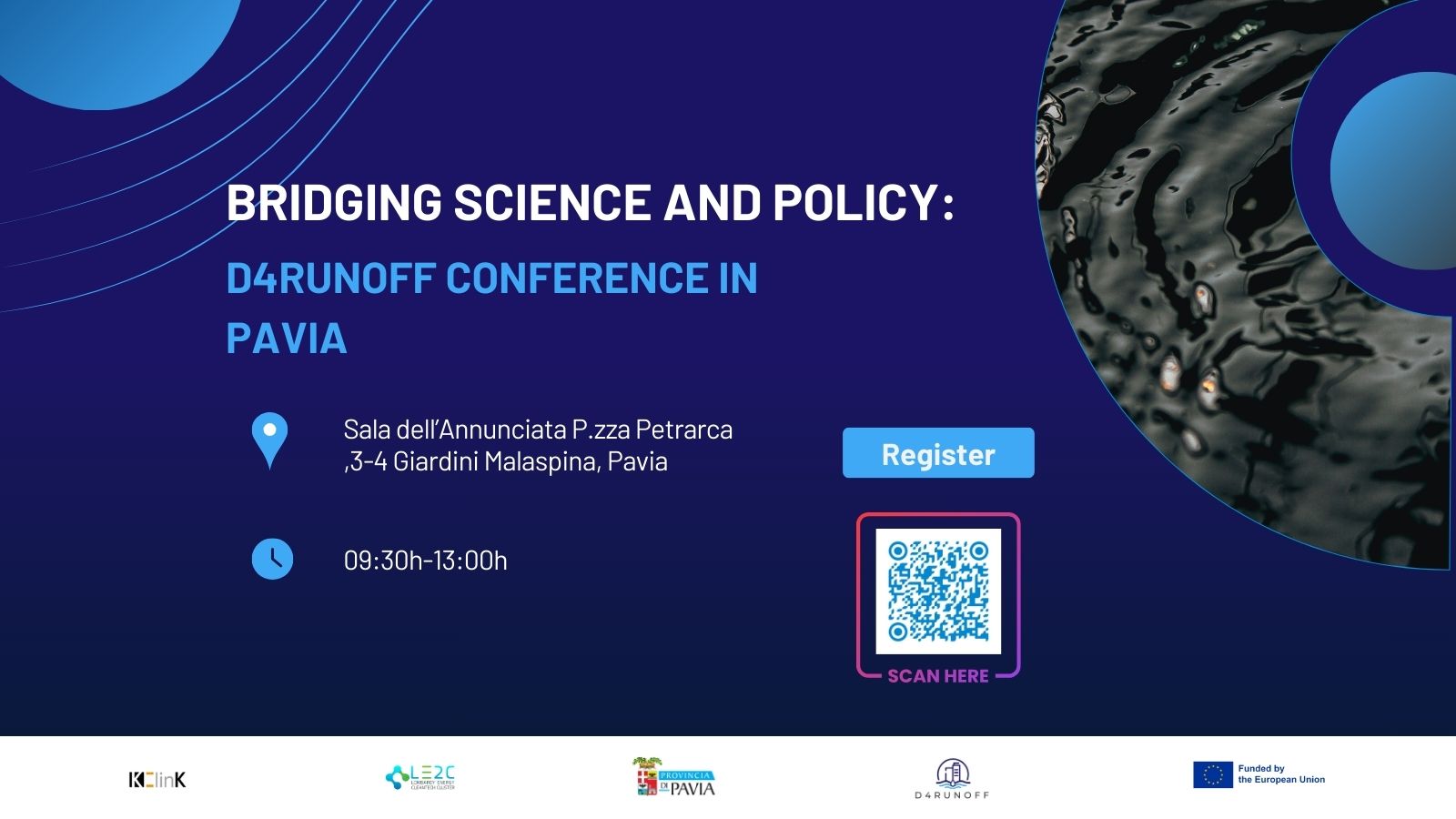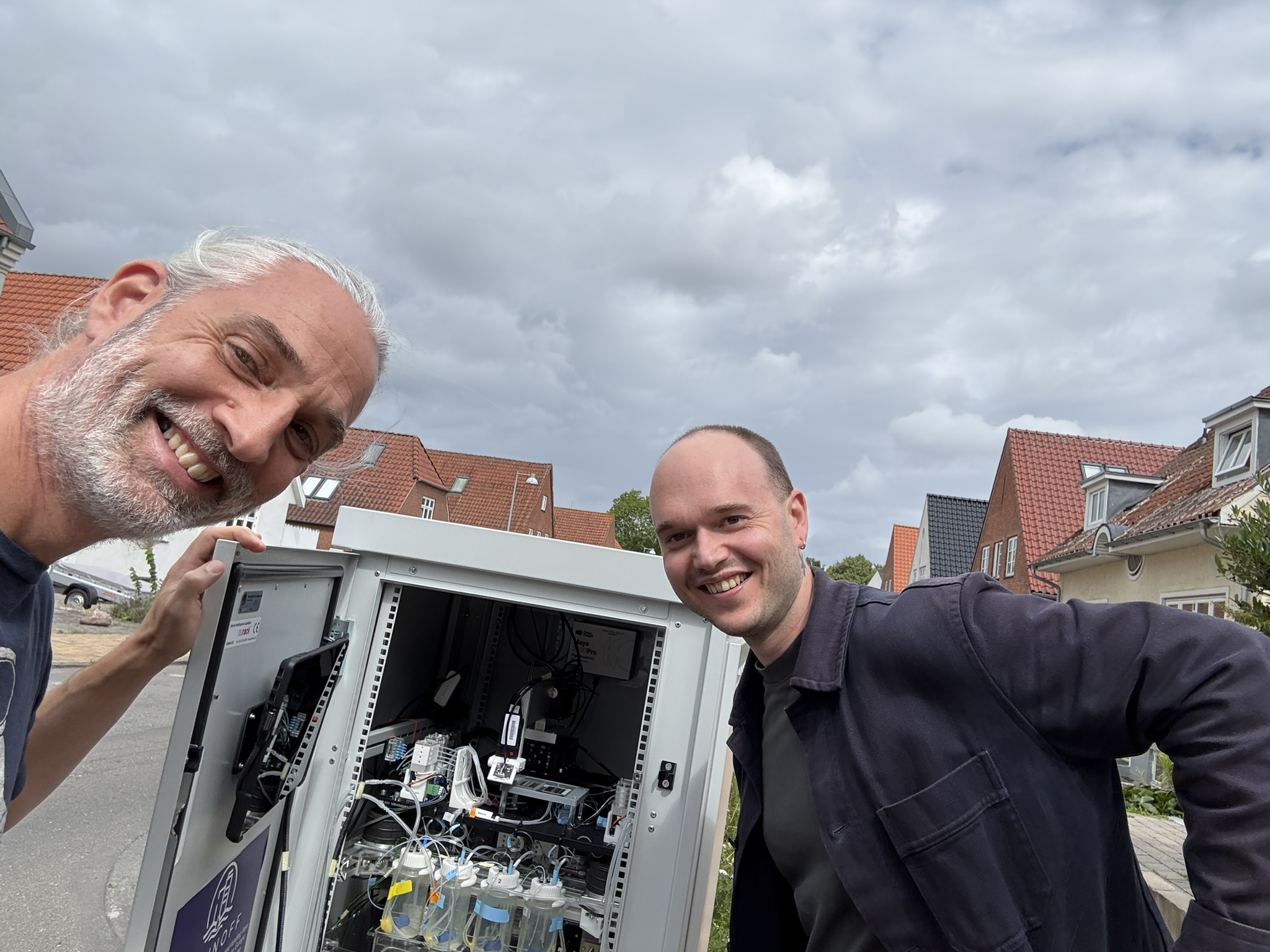
A Look Back at the D4RUNOFF Final Open Day
As D4RUNOFF approaches its final stage, the consortium gathered in Odense on 12 November 2025 for the project’s Final Open Day – a day dedicated to showcasing nearly four years of research.
Hosted in the heart of Odense, the event brought together citizens, researchers, water experts, and EU project representatives to present new research findings, and technological solutions for managing runoff pollution and implementing nature-based solutions (NBS).
From science to practical solutions for stakeholders
After a warm introduction by project coordinator Laura Roed Bonde, key partners presented the project’s main scientific and technological outcomes.
Prof. Jan Christensen (University of Copenhagen) opened the session with findings from advanced screening methods, identifying pollutants such as caffeine, paracetamol, desvenlafaxine, and traffic-related contaminants (1,3-Diphenylguanidine, 6PPD, and zinc) in urban runoff.
Laura Rodríguez Lorenzo (INL) followed, presenting the INL innovative sensors, their validation process, and their “European journey” — from Santander to Odense, now continuing to Pontedera.
Then, Jorge Rodríguez Hernández (University of Cantabria) introduced the Parametric Library and the Multi-Criteria Decision Analysis tool, designed to help select optimal NBS locations. These tools are integrated into the AI-assisted urban runoff platform, presented by Jesús Fernández Águila (ITG), which includes five interactive modules for data gathering, decision-making, risk assessment, and stakeholder engagement.

The second half of the morning included three different sessions;
- the sister projects’ presentations
- the oral presentations from the replication sites; Pisa Sud and Aarhus
- the panel discussion.
We have the pleasure to have with us representatives from 7 sister projects; Nina Almind-Jørgensen (Life Reseau), Anna Bonven (Arcadia), Florencia Sofía Gómez (BAPUR), Anna Laustsen (WATERUN), Luca Vezzaro (Urban MO2), Enrique Romero Frasca (NICE NBS) and Marianne Zandersen (Invest4Nature) which presented their work and key outcomes from their projects. Also, some of these projects presented their results in the EU corner exhibition including the new eu funded project WATERSENS.

After the short oral presentations from the replication sites and before the lunch break, a dynamic panel discussion took place. Moderated by Jonas Deibjerg Rasmussen (VCS), the panel gathered four experts — Jan H. Christensen (KU), Per Henrik Nielsen (VCS), Michelle M. Birch (Odense Municipality), and Uffe L. Gangelhof (3partner ApS) — representing academia, utilities, government, and industry. Together, they discussed how to turn data into concrete actions, adapt legislation, and strengthen cooperation across sectors to meet the goals of the EU Water Framework Directive.
Water Alert Game – Engaging Pupils in Climate and Water Awareness
While stakeholders engaged in discussions, 20 pupils from an Odense secondary school joined Three o’clock’s team — Olga Glumac and Evdokia Bairampa — to test the final version of the Water Alert Game. Divided into six teams, the students learned about water pollution and nature-based solutions through play, calling the experience “super fun,” “creative,” and “eye-opening.”
Over 50 teenagers across Italy, Portugal, and Spain had previously tested the game, helping refine it into the engaging educational tool showcased in Odense.
Pupils left the game session with a card game in their tote bags, along with other D4RUNOFF souvenirs.
Hands-On Learning: Afternoon Workshops
The afternoon featured two interactive workshops.
- MITIGA and Federica Guerrini presented the risk assessment model, gathering feedback from local stakeholders to improve its final version.
- Meanwhile, Jorge Rodríguez Hernández and Jesús Fernández Águila guided students and citizens through a gamification challenge, testing the social module of the AI-assisted platform.
Final remarks
D4RUNOFF will conclude in February 2026, but we still have four productive months ahead to finalise our work and build connections with other research initiatives. The Odense Open Day served as a strong validation of our efforts — proving that over the past three years, our team has worked diligently to deliver high-quality scientific and technological results that can accelerate research and inform policy decisions at both EU and national levels.



